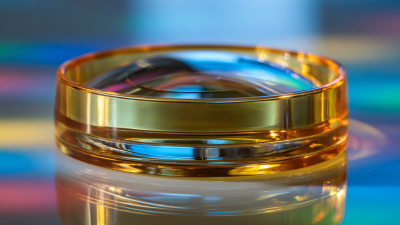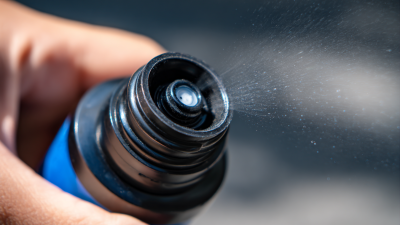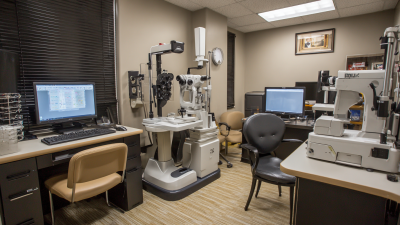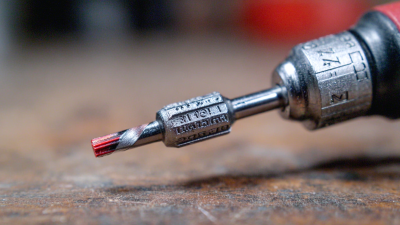Discover the Advantages of Choosing the Right Contact Lens Case for Your Eye Care
In the world of eye care, the importance of a proper Contact Lens Case cannot be overstated. According to a study by the American Optometric Association, improper handling and storage of contact lenses can lead to serious eye infections, with over 1 million cases reported each year in the United States alone. The right contact lens case not only protects lenses from contaminants but also plays a crucial role in maintaining lens hygiene and longevity. Research indicates that using an appropriate case can reduce the risk of infections by nearly 60%, highlighting the need for consumers to prioritize quality when selecting their lens storage. Exploring the advantages of choosing the right contact lens case is essential for anyone who wears contacts, as this small yet significant accessory can make a considerable difference in eye health.

The Importance of Material Selection in Contact Lens Cases for Optimal Eye Health
When it comes to maintaining optimal eye health, selecting the right contact lens case is crucial. The material of the case plays a significant role in ensuring that your lenses remain clean and free from harmful bacteria. Cases made from high-quality, non-toxic materials are ideal, as they minimize the risk of contamination and irritation to your eyes. Additionally, choosing a case with UV protection can help safeguard your lenses from degrading under sunlight exposure, enhancing their longevity.
**Tip 1:** Look for contact lens cases made from medical-grade plastic, which is durable and resistant to harmful bacteria. Regularly replacing your case every three months can further improve your eye care routine.
Furthermore, some cases come with antimicrobial coatings that can offer added protection against germs. This feature is especially beneficial for individuals who wear their lenses for extended periods. It is essential to clean your case regularly and always ensure it's completely dry before placing your lenses back in.
**Tip 2:** Consider investing in a case that includes a cleaning solution compartment. This convenience allows for quick sanitation of your lenses, reducing the chances of eye infections. Remember, a clean lens case contributes significantly to your overall eye care regimen.

Understanding the Role of Proper Hygiene in Prolonging Lens Lifespan
Proper hygiene plays a crucial role in prolonging the lifespan of contact lenses, significantly impacting eye health. According to the American Optometric Association, maintaining clean contact lens cases can help reduce the risk of eye infections by up to 70%. Contaminated lens cases can harbor bacteria and fungi, leading to complications such as keratitis or conjunctivitis. Regularly replacing your contact lens case every three months, as recommended by the Centers for Disease Control and Prevention (CDC), ensures you're minimizing these risks and keeping your lenses safe.
Tips for maintaining proper hygiene include thoroughly cleaning your lens case with contact lens solution after each use, and letting it air dry with the lids off. Avoid rinsing the case with water, as tap water can introduce harmful microorganisms. Additionally, always wash your hands with soap and water before handling your lenses or case. By incorporating these simple practices into your routine, you can extend the life of your lenses and ensure optimal eye health.
Investing in the right contact lens case is equally important. Opt for ones with a lockable cap or anti-bacterial properties, which can provide extra protection against contaminants. Remember that your contact lens case is just as vital as the lenses themselves in your eye care routine. Keeping it clean and choosing the right design can help ensure a healthier experience with your lenses.
Comparative Study: Hard vs. Soft Contact Lens Cases and Their Impact on Eye Care
When it comes to maintaining eye health, the choice of a contact lens case can play a surprisingly crucial role. Hard contact lens cases offer durability and excellent protection against physical damage. Their rigid structure typically shields lenses from external pressure during transport, minimizing the risk of scratches. Additionally, hard cases often provide a secure seal, preventing moisture loss and contaminants from entering, which helps to keep lenses clean and safe.
On the other hand, soft contact lens cases have their own set of benefits that cater to everyday convenience. They are lightweight and often easier to carry, making them a popular choice for those on the go. Soft cases usually come with added flexibility, allowing them to fit in tight spaces without compromising the safety of the lenses. However, users must ensure their cases are cleaned regularly to avoid bacterial growth, which can pose risks to eye health. Ultimately, the decision between hard and soft cases hinges on personal lifestyle needs, emphasizing the importance of carefully considering how each type can best support your eye care regimen.
Examining the Impact of UV Protection in Contact Lens Cases on Microbial Growth
When it comes to maintaining eye health, the selection of a contact lens case plays a crucial role, particularly regarding microbial growth. Studies have indicated that contact lens cases are a common reservoir for bacteria, with research published in the *Journal of Eye & Contact Lens Research* revealing that nearly 30% of cases harbor pathogens that could lead to serious eye infections. This alarming statistic highlights the importance of not only regular cleaning but also the materials and features of the cases themselves.
 One significant advancement in the design of contact lens cases is the incorporation of UV protection. According to a study published by the American Academy of Optometry, UV-blocking materials can reduce the presence of bacteria by up to 50% compared to standard cases. This is primarily due to UV light's ability to disrupt the DNA of microorganisms, significantly lowering their ability to replicate. Therefore, choosing a UV-protective contact lens case not only enhances convenience for lens wearers but also serves as a proactive measure in safeguarding against potential microbial threats, ultimately contributing to healthier eyes.
One significant advancement in the design of contact lens cases is the incorporation of UV protection. According to a study published by the American Academy of Optometry, UV-blocking materials can reduce the presence of bacteria by up to 50% compared to standard cases. This is primarily due to UV light's ability to disrupt the DNA of microorganisms, significantly lowering their ability to replicate. Therefore, choosing a UV-protective contact lens case not only enhances convenience for lens wearers but also serves as a proactive measure in safeguarding against potential microbial threats, ultimately contributing to healthier eyes.
Consumer Insights: How Different Features in Contact Lens Cases Affect User Satisfaction
When it comes to eye care, the choice of a contact lens case can significantly impact user satisfaction. According to a recent survey conducted by the American Optometric Association, 72% of contact lens wearers reported that the case's design and features directly influenced their overall experience with contact lenses. Factors such as easy accessibility, secure closures, and material quality were highlighted as crucial elements that enhance user satisfaction. For instance, cases with UV sterilization features not only provide convenience but also contribute to better hygiene, reducing the risk of eye infections.
Moreover, data from the Contact Lens Institute reveals that 63% of users prefer cases that include built-in tools for lens handling, such as tweezers and suction cups. These additional features cater to users' needs for ease and safety when dealing with delicate lenses. Furthermore, the aesthetic appeal of a contact lens case cannot be underestimated; a well-designed, visually appealing case can create a greater emotional connection with users, leading to increased usage and care compliance. As the market evolves, manufacturers are paying closer attention to these consumer insights to enhance product offerings, ultimately shaping a more satisfying experience for the millions of contact lens wearers globally.
Discover the Advantages of Choosing the Right Contact Lens Case for Your Eye Care
| Feature | User Satisfaction Rating (out of 5) | Advantages |
|---|---|---|
| Material Type | 4.5 | Durable and less prone to bacterial growth |
| Anti-UV Coating | 4.7 | Protects lenses from UV rays |
| Secure Closure | 4.8 | Prevents leaks and protects lenses |
| Ventilation Holes | 4.3 | Prevents moisture buildup |
| Size and Portability | 4.4 | Easy to carry and store |
Related Posts
-

Unlocking the Secrets of the Best Contact Lens Case with Essential Features and Usage Tips
-

Exploring the Future of Lens Care: Leading Innovations and Alternatives for 2025
-

8 Powerful Reasons to Choose the Best Optometry Equipment for Your Practice
-

Innovative Eyeglass Nose Pads Examples Enhancing Comfort and Style
-

Unlocking Efficiency with a Screwdriver Set for Every Task
-

7 Key Benefits of Using the Best Screwdriver Bit for Every Professional Toolbox
